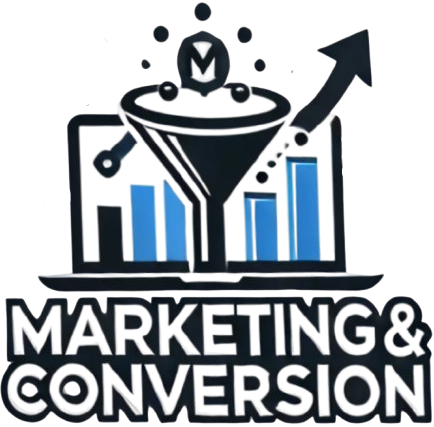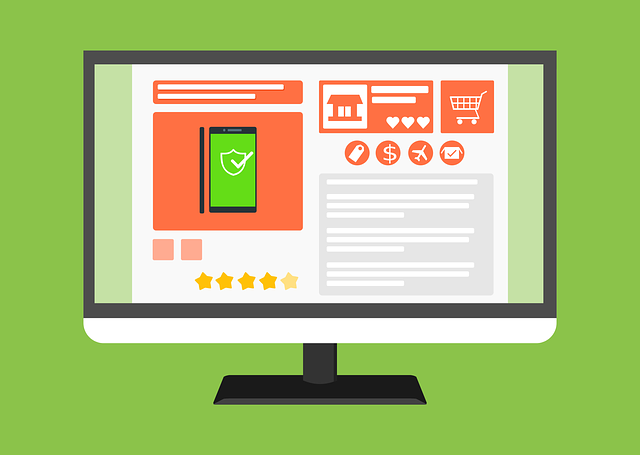eCommerce Platform
An eCommerce platform for small businesses is a pre-built software designed to create and operate online stores. The key element is a store builder for eCommerce. These systems commonly include payment and inventory management functionalities. Certain providers additionally provide customer support and marketing tools.
By utilizing eCommerce software, it is possible to construct a functional online shop. This approach proves to be more economical compared to creating an online store from the ground up. Nevertheless, it does have certain limitations. Despite the availability of numerous customization and design choices, not every aspect can be altered. Additionally, a subscription fee is required, and in certain instances, supplementary features may incur additional costs.
However, building an eCommerce store or transitioning your physical store to an online platform remains both inexpensive and simple.
Best eCommerce platforms for small businesses
1. Shopify
Shopify is widely recognized and highly favored in the eCommerce industry as one of the most popular software platforms. Their software is designed with a strong emphasis on user-friendliness, as they have dedicated a significant amount of time and effort towards this purpose. The process of setting up an online store on Shopify is intuitive, and in addition to that, there are numerous guides readily available for assistance.
With modern drag-and-drop tools, it is easy to apply and adjust over 100 template designs available at Shopify Theme Store.
In the Shopify App Store, there are over 7000 integration options available. The majority of these options are either free or offer a free plan. You have the ability to establish the eCommerce platform for dropshipping. Alternatively, you can integrate a shipping service for fulfillment. You have the option to select from over 100 payment gateways to provide your customers with a sense of security.
In case you encounter any difficulties, feel free to reach out to our support team via email or live chat at any time of the day.
This is what sets Shopify apart: Shopify is distinguished by the following factors:
- User-friendly interface: every inch of their tool is easy to use. It’s intuitive, clean, and easy to navigate.
- Shopify App Store with 7000+ apps: find an integration for everything you need.
- Over 100 payment providers: accept payments from customers worldwide.
Shopify pros and cons
Shopify offers a user-friendly interface that allows you to easily create your online store within minutes. It is widely recognized as one of the top eCommerce platforms for both beginners and advanced users. However, if you prefer having more control over the technical aspects, Shopify’s self-hosted nature may be limiting. Additionally, some may find their free trial period to be shorter than desired.
Advantages
- Easy to use
- 100+ free and paid templates
- 7000+ integrations
- Unlimited products, storage, and bandwidth
- PCI compliant transactions
- 100+ payment options
- Loads of setup guides online
- 24/7 email and live chat support
Please rephrase the text below while maintaining the same meaning, thinking step by step. Do not add new information and do not remove any information. “Considering the steps one by one, please rephrase the following text while ensuring that the original meaning is preserved. Do not introduce any new information and do not exclude any existing information.”
- Non-self-hosted platform – less freedom
- A short 3-day free trial
Shopify pricing
Shopify provides a 3-day trial period that does not require a credit card. The pricing plans begin at $32 per month and include 2 staff accounts, 1000 inventory locations, abandoned cart recovery, marketing automation, and segmentation.
2. Zyro
Zyro is a cost-effective ecommerce platform designed for small business owners. Its design is simple, and the tools provided are user-friendly. Constructing your store with Zyro is a straightforward process. Additionally, it is a speedy platform as it does not hinder you with boundless design choices. Moreover, it offers a wide selection of over 140 templates.
Their AI tool for content is one of the most remarkable features. It generates page copy automatically, although minor edits may be necessary. Additional features consist of mobile-optimized sites, an integrated image editor, and a grid layout editor.
Zyro offers a total of 5 integrations, which encompass Facebook Pixel, Google Analytics, and Hotjar. Additionally, in comparison to other providers mentioned here, Zyro is the most affordable eCommerce platform. If you are logged in, you can avail of Zyro’s customer support at any time via email or live chat.
The following are the distinctive aspects of Zyro.
- AI content creation tool: automatically creates content for your site. This makes setting up a webshop quick and effortless.
- Built-in image editor: edit images after you’ve uploaded them. And optimized images work great for search engine optimization (SEO) and rankings.
- Best value: all the tools you need to create a store with the lowest monthly fee.
Zyro pros and cons
Zyro offers a straightforward solution for swiftly creating your online store. Although it lacks an abundance of features, it provides sufficient capabilities to achieve the desired outcome. You receive a comprehensive package, encompassing web hosting services to payment gateways, at an affordable monthly fee. However, it is worth noting that the overall cost rises alongside a 1% transaction fee. Moreover, Zyro has limited integration options.
Advantages
- Simple interface and tools
- 140+ templates
- Cheap monthly cost
- Unlimited bandwidth and storage
- 20+ payment options
- Free SSL certificate
- 24/7 email and live chat support
Follow a step-by-step thought process to rephrase the given text without introducing new information or omitting any details: Please reconsider your approach and rephrase the text by following a sequential line of thinking, without incorporating additional information or eliminating any existing information.
- Limited customization options
- 5 integrations
- 1% transaction fee
Zyro pricing
With every plan, Zyro provides a 30-day money-back guarantee. The starting price for the most affordable tier is $3.99 per month if you choose a 2-year plan.
3. BigCommerce
Most suitable for small businesses that have experienced growth and transformed into large corporations or enterprises.
Here is an overview of BigCommerce when considering all aspects.
- Price: Standard: $29.95/month; Plus: $79.95/month, or $71.95/month when paid annually; Pro: $299.95/month, or $269.96/month when paid annually; Enterprise custom pricing.
- Free trial length: 15 days.
- Integrated sales channels: Google Shopping, Facebook, price comparison engines, eBay, Amazon, Walmart, Etsy, and Instagram.
- Mobile app features: View analytics, update orders, manage inventory and products, and search for customers; some features are Android-only.
- Point-of-sale: Yes.
- G2 rating: 4.2/5
BigCommerce is a highly powerful ecommerce platform that offers a wide range of features. For small businesses, it can feel overwhelming, but if you have growth plans or technical support, BigCommerce might be the ideal platform for you.
In the majority of cases, BigCommerce is most beneficial for large businesses, corporations, or enterprises that require tailored and flexible solutions. These types of companies usually possess greater technical resources or the financial means to acquire them, which is essential for constructing and customizing an online store using BigCommerce.
BigCommerce offers features for international commerce, SEO, and selling on social media and third-party marketplaces. Additionally, it is compatible with numerous payment options and provides highly affordable payment processing rates, which are occasionally even free.
Sharpstone Grinders utilizes the BigCommerce ecommerce platform for its operations. The brand offers products directly to both individual buyers and wholesale customers. Furthermore, it has incorporated PayPal into its system, enabling customers to avail buy now, pay later services along with other payment alternatives.
4. Squarespace
Ideal for those wanting to create their own ecommerce website.
A quick overview of Squarespace:
- Price: Personal: $16/month, or $12/month when paid annually; Business: $26/month, or $18/month when paid annually; Basic Commerce: $30/month, or $26/month when paid annually; Advanced Commerce: $46/month, or $40/month when paid annually; Enterprise pricing also available.
- Free trial length: 14 days, and you can opt for a one-time, seven-day trial extension.
- Integrated sales channels: Shopping Feed extension to sell on Amazon, eBay, Etsy, and Google Actions.
- Mobile app features: Website editing, shipping label scanning, order management, inventory management, and customer communication.
- Point-of-sale: Available via mobile app.
- G2 rating ?: 4.4/5
Squarespace is considered one of the top ecommerce website builders for small businesses due to its user-friendly interface. Regardless of your limited technical knowledge, you can create an online store by utilizing Squarespace’s templates, drag-and-drop tools, and dependable functionality.
Squarespace was initially launched as a website builder rather than an ecommerce platform. However, it has later incorporated additional features to cater to online sellers. While a significant number of Squarespace users primarily sell services rather than physical goods, it is still feasible to utilize it for businesses that are product-based.
Squarespace provides several top features that are beneficial for businesses. These include efficient scheduling and integration with calendars, email marketing capabilities, integration with social media platforms, and the provision of embeddable maps to assist customers in locating your physical establishment (if applicable). Additionally, Squarespace offers features for businesses that operate on a subscription basis, such as recurring billing options.
The website of Apostrophe Puzzles, an online store, has been created using the Squarespace ecommerce platform. The design and functionality are straightforward yet effective.
5. Wix
The most suitable option for designing ecommerce sites that prioritize visuals and images.
Here is a concise overview of Wix:
- Price: Business Basic: $23/month; Business Unlimited: $27/month; Business VIP: $49/month.
- Free trial length: No free trial.
- Integrated sales channels: Facebook and Instagram require third-party app Ecwid.
- Mobile app features: The ability to manage your website, though lacks key business tools like inventory management; requires a separate app to use mobile POS.
- Point-of-sale: Yes.
- G2 rating ?: 4.2/5
In addition to its user-friendly website builder, Wix provides extra features specifically designed for ecommerce. Paid plans enable you to utilize ecommerce functionalities such as order tracking, online payments, multi-channel selling, and abandoned cart campaigns. Access to analytics tracking, which monitors your ecommerce key performance indicators (KPIs), also requires a paid plan.
When it comes to designing your storefront, Wix offers more than 500 templates for you to choose from. The drag-and-drop interface makes it easy for you to customize the look and feel of your online store. Additionally, Wix supports subscription-based billing and dropshipping by leveraging third-party services.
Evolve Clothing Gallery, an ecommerce website example, has been created using Wix. The website showcases large multimedia visuals, incorporates voice search, and provides live chat functionality.
6. Square online
The best option for physical retailers who want to enter the ecommerce market.
Square Online summarized:
- Price: Free; Professional: $12/month; Performance: $26/month; Premium: $72/month.
- Free trial length: n/a; free plan available.
- Integrated sales channels: Google Shopping, Instagram, and Facebook.
- Mobile app features: View live sales data, data analytics, payment processing, mobile POS, money transfers, receipts, discounts, refunds, and inventory tracking.
- Point–of–sale: Integrated Square POS.
- G2 rating ?: 4.3/5
Square initially launched their POS device for retailers, but they have since expanded their range to include other business management tools, such as Square Online. Square Online seamlessly integrates with other Square products and is also compatible with mobile wallets, Afterpay, and additional platforms.
Square offers a variety of templates designed for different industries such as retail, restaurants, and non-profits, enabling you to create an online storefront. With Square Online, you can also benefit from embedded payment processing at a cost of 0.9% plus 30¢ per transaction.
Vermont’s Parlour salon increased its online presence by incorporating Square, which allows customers to buy products from its ecommerce site.
7. Sellfy
Best for small stores
Sellfy serves as an eCommerce platform primarily designed for creators but is also suitable for various types of small businesses. It offers a 14-day free trial for paid plans and a 30-day money-back guarantee. Getting started with Sellfy is a swift process due to its user-friendly store builder interface. Although there are only five themes available, there are ample design and customization options to ensure a distinctive storefront can be created.
Sellfy offers the option to sell physical and digital products or subscriptions. It provides various features such as built-in marketing apps, website embedding capabilities, and upselling options. Sellfy provides 7 integration options, including Google Analytics, Zapier, and Facebook Live Chat. Additionally, it allows users to accept payments through PayPal and Stripe. While customer service is available 24/7, it can only be accessed through email.
Sellfy has certain distinctive qualities that set it apart from other platforms.
- Print on demand: a built-in feature designed for custom-designed products.
- Freebies category: generate leads by offering free promotional products.
Sellfy pros and cons
Sellfy provides all the necessary tools for establishing an online presence for your business. They even provide the opportunity to test them out with a complimentary plan alongside a 30-day money-back guarantee. However, Sellfy does have some drawbacks. There is a limited selection of only 5 themes and 7 integrations available. Additionally, customer support can only be contacted via email.
Advantages
- Easy to use
- Print on demand
- Freebie category
- Lots of marketing features
- Free SSL
- 14-day free trial for premium plans
- 30-day money-back guarantee for paid plans
Consequentially, individuals who consume excessive amounts of alcohol increase their risk of developing various health issues including liver disease, high blood pressure, and heart problems. This is due to the fact that alcohol has a detrimental effect on these organs and can lead to their dysfunction. Consequently, moderation in alcohol consumption is crucial in order to maintain good health and reduce the chances of developing these conditions.
- 5 themes
- 7 integration options
- 24/7 support only over email
Sellfy pricing
Sellfy offers a 14-day free trial and refunds are available for up to 30 days with the paid plans. The pricing begins at $19 per month for a 2-year subscription.



